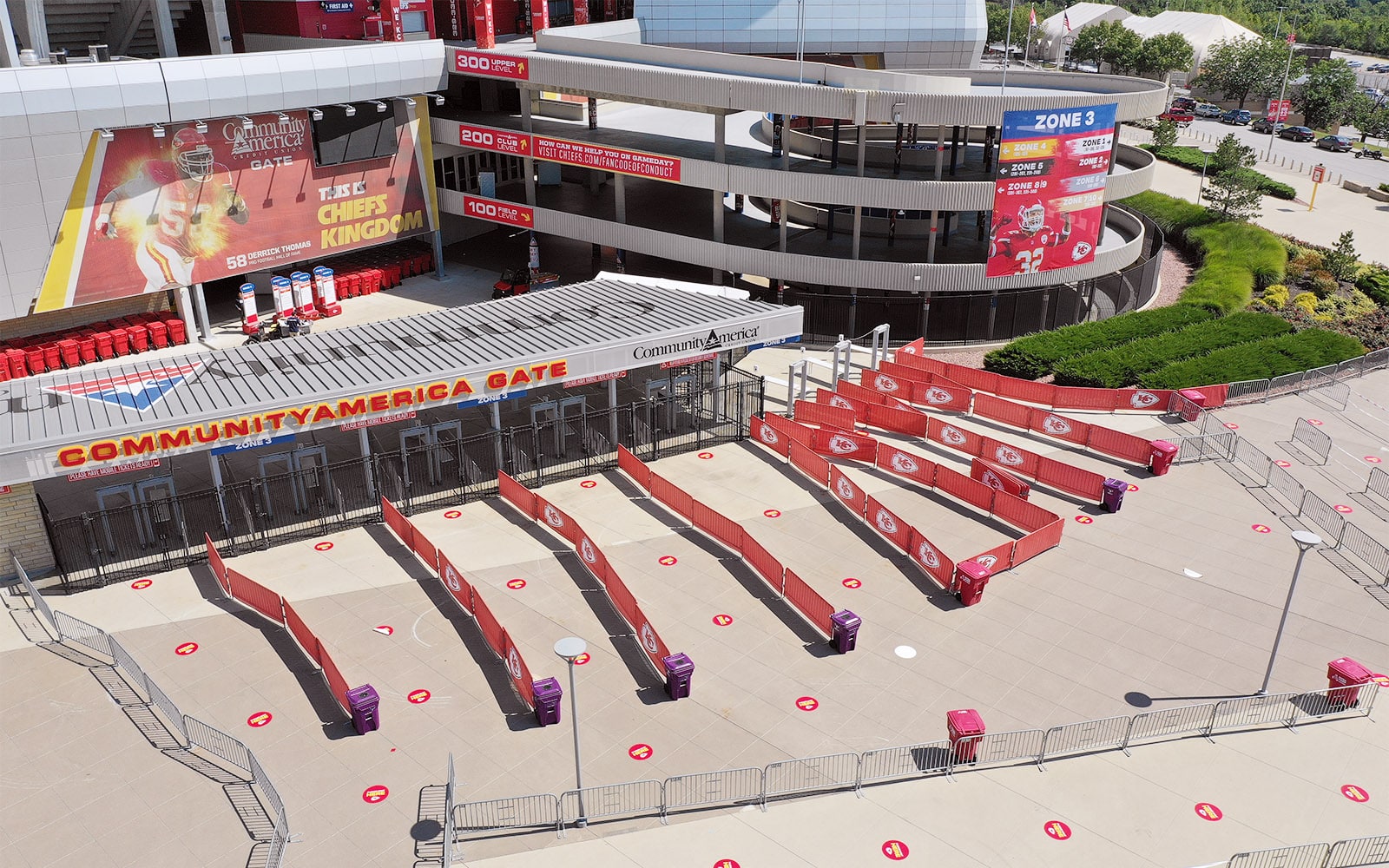|
Getting your Trinity Audio player ready...
|
When you think of the Kansas City Chiefs and their NFL dominance over the last five years (they’ve won three of the last five Super Bowls since 2020), you might not picture Patrick Mitchell. He’s the team’s project director of mechanical, electrical, plumbing, and construction, but Mitchell has had to play a different kind of defense in his career.
Mitchell was a Louisiana state champion wrestler in high school, courted by big-name wrestling schools. However, Mitchell elected to go to West Point because he graduated the same year the Twin Towers fell in New York City.
“The towers falling made my decision for me,” Mitchell remembers. “I figured I’d try to become a leader and get all of my guys back to the country safely.” After graduating from West Point, Mitchell was commissioned as a cavalry officer, completed Army Ranger school, and deployed to Afghanistan.
Mitchell did three tours of duty. The veteran helped spearhead the troop surge of Southern Afghanistan in 2009, spent time with an infantry unit in Eastern Afghanistan, and was eventually stationed in Jordan when the war made its way to Syria.

Over the course of those three tours and eight years of active-duty service, Mitchell did things he’d never done before. He built roads, barracks, water filtration systems, and dining facilities. He created functioning military communities where nothing had existed prior, often in active military zones.
Transitioning to the civilian world took some time. Mitchell had to slowly adapt to the mindset that it wasn’t human lives, but money, that was on the line. And there were other, less obvious differences.
“I had spent years using one particular vocabulary,” Mitchell says. “I spoke that language and had a feeling for how things needed to run. That all changes quickly and you feel like you’re catching up to a generation that’s ahead of you. While I was in the service, everyone else was getting real industry experience. You have to learn fast and adapt.”
Mitchell built out project management experience at Kingham Dalton Wilson in Houston and superintendent responsibilities at Turner Construction before coming to the Kansas City Chiefs during the offseason of 2022. Once again, he faced a new situation and a whole host of new responsibilities at Arrowhead Stadium, where the Chiefs play.
Fortunately, Mitchell’s learning curve was extended by a few months, as the Chiefs made their way to winning the Super Bowl the following season. He’s since learned how to get things done when players aren’t on the field.
“The challenge of this role is that in the sports world, you have very limited time to get things done,” Mitchell explains. “For instance, we will be one of the host cities for the FIFA World Cup in 2026. That’s two years away, but we have to play a lot of football and host massive concerts and events before then. 2026 is going to be here before you know it.”

Mitchell employs a rubber versus glass balls metaphor for handling this kind of pressure. “Rubber ball” projects can afford to get pushed, amended, and worked around. They’ll bounce back and be handled when the time is right. But there are the glass balls, which cannot be dropped or mistimed.
“The military taught me to prioritize,” Mitchell says. “Everything is important, but everything has its place and time. We’re always working to overcome our scheduling challenges, so you just have to make sure you’re addressing what you need to in the order that it’s going to serve our players, our fans, and our community the best.”
Mitchell is extremely complimentary of the facilities staff working under him. He says it gives him more time to plan, strategize, and figure out the order of operations for the coming year. Construction at Arrowhead Stadium, especially as it pertains to FIFA in 2026, will be a five-phase project—one that’s already in progress.
And whether it’s the stadium, a recent remodel at the Chiefs practice facility, or working out the specifics of transforming a football stadium into a soccer stadium that will have the entire world’s eyes on it in 2026, Mitchell’s wife supports him. The two met at West Point and have two boys who have gotten used to their dad being late now and then because their he’s working at a game.
“My wife’s been there for everything, and we had the opportunity to struggle together early on getting back into the workforce,” Mitchell says. “I’m just grateful that I’ve got a great family, great mentors, and a great team around me.”
Kruse Corporation has been operating since 1994 and firmly established itself as a trusted and dependable single-source mechanical contractor in Kansas and surrounding. Its long-term stability, diverse range of capabilities, and extensive expertise have contributed significantly to its well-regarded reputation. With annual revenues surpassing $75 million, Kruse has built a successful history spanning over 30 years, marked by consistent financial achievements.
Deeply rooted in Kansas, Kruse operates in key locations such as Wichita, Manhattan, Western Kansas, and the Kansas City areas. The company’s foundation rests on four core pillars that have guided its success: Discipline, Morale, Toughness, and Competence.


